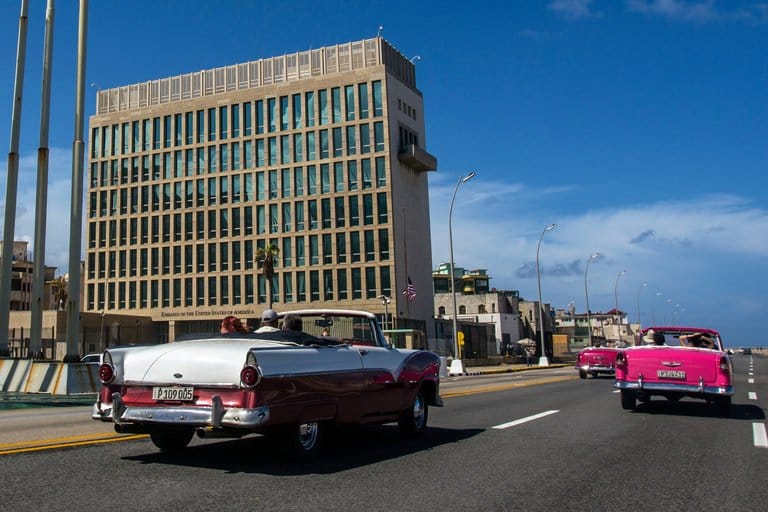
The New York Times / Editorial: Cuba and the Mystery of the Sonic Weapon
 Not since the Cold War has there been a diplomatic mystery as intriguing as the “sonic weapon” purportedly used against American and Canadian officials in Havana. The Trump administration has yet to identify a culprit or a device that would explain the rash of symptoms among officials first noted months ago and acknowledged in August, but these are real and deeply worrisome: hearing loss, dizziness, headaches and cognitive issues.
Not since the Cold War has there been a diplomatic mystery as intriguing as the “sonic weapon” purportedly used against American and Canadian officials in Havana. The Trump administration has yet to identify a culprit or a device that would explain the rash of symptoms among officials first noted months ago and acknowledged in August, but these are real and deeply worrisome: hearing loss, dizziness, headaches and cognitive issues.
Every country keeps tabs on potentially hostile diplomats and spies, and the Cold War spy vs. spy games were rich in gimmickry and trickery. But deploying a tool that causes serious health problems would be a serious violation of accepted international behavior.
Cuba’s repressive government must be the prime suspect. It would certainly want to keep watch over a large batch of newly arrived American diplomats and intelligence operatives. If Cuba is found to have used some new surveillance machine, the United States would have the obligation to respond angrily.
But until there is concrete evidence about the source of the attacks, the Trump administration is wrong to expel Cuban diplomats from Washington, as it did on Tuesday. Secretary of State Rex Tillerson’s explanation that Cuba should be punished for failing to protect American diplomats presumes that Cuba was at least aware of the attacks, which the United States has neither demonstrated nor claimed.
So far, the Cuban government has strongly denied any awareness of a sonic weapon and has actively assisted American investigators. Other parties, most notably Russia, must also figure as suspects: President Vladimir Putin would probably welcome a setback to U.S.-Cuban relations.
Until something more is known, punishing Havana serves only to further undermine the sensible opening to Cuba begun under Barack Obama. President Trump has made no secret of his disdain for the détente — in June his government ordered restrictions on contacts with Cuba that have slowed the flow of visitors to the island, and last week the State Department warned Americans not to travel there, though there is no evidence that tourists are in danger. The sonic attacks on Americans are too serious to be used for cynical political ends.
